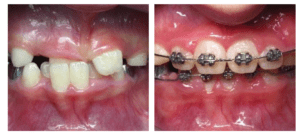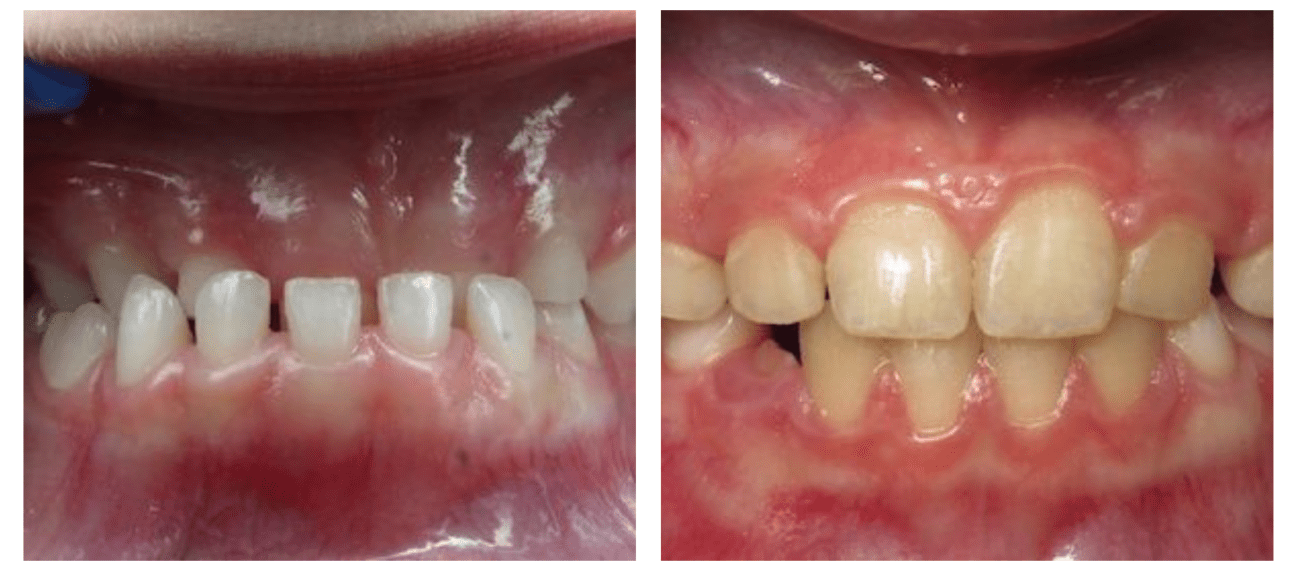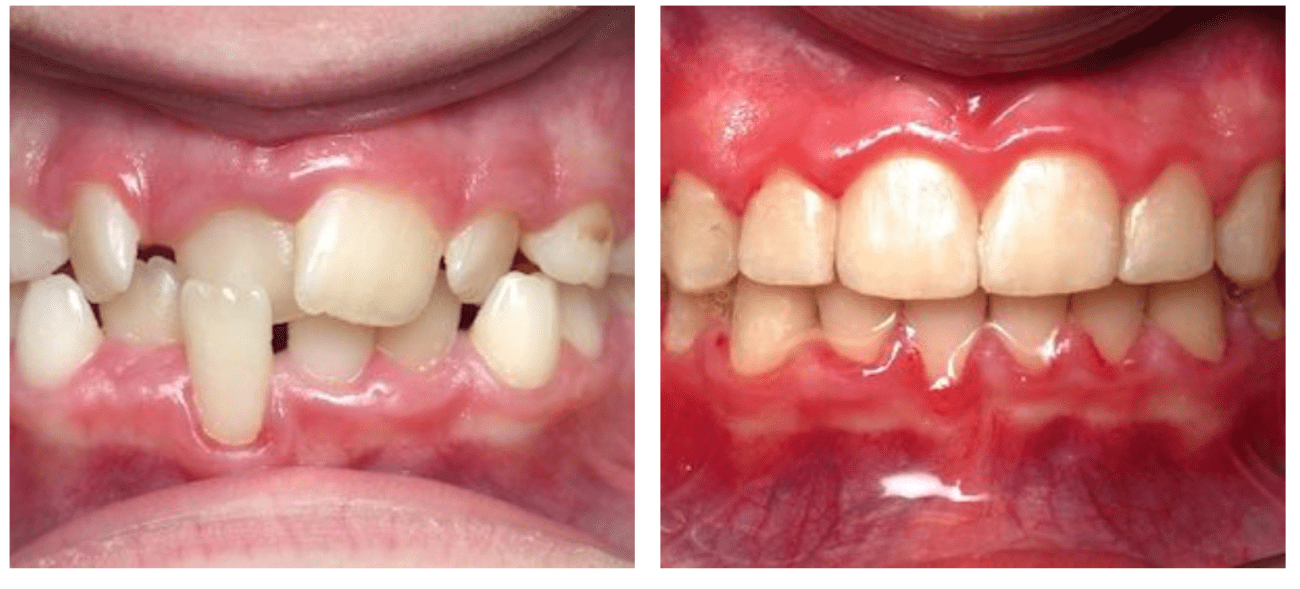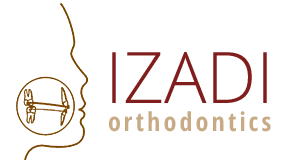An underbite is a term for a dental condition where the lower jaw protrudes forward past the upper arch of teeth. Some patients have minor underbites that will not affect their life or health, while others have very noticeable, severe cases.
Underbites can lead to a range of oral health complications and often cause patients a great deal of social difficulty. Treating underbites during the early stages of oral development can improve the health and comfort of the bite and prevent further stigmatization.
Timonium, MD board-certified orthodontist Dr. Mohammad Izadi offers comprehensive orthodontic care for the treatment of underbites. Our goal is to pinpoint the functional and skeletal cause of the underbite in order to bring the jaw back into proper alignment. Izadi Orthodontics promotes orthodontic retention through patient education and extended support after the completion of treatment. Our dental office also treats additional dental problems in Timonium, Maryland.

What Causes an Underbite?
Underbites are commonly hereditary and are typically caused by an underdeveloped upper jaw and a larger lower jaw. Overcrowding and jaw deformities can also cause an underbite. Early intervention and phased treatment for underbites are highly recommended for optimal results.

There are also many habits a child could acquire that could lead to an underbite. While not all thumb sucking will damage teeth, persistent and vigorous thumb sucking can affect the lower jaw causing an underbite.
Also, when a child uses a pacifier past the age of 3, this can also affect the lower jaw. Other childhood habits that can lead to an underbite include pushing their teeth constantly with their tongue and feeding with a bottle way past infant years.

Complications Caused by Underbites
Besides leading to poor self-esteem due to appearance, underbites can also make it difficult for children to eat and speak normally. Underbites can affect a child’s speech development and facial and skeletal development. More advanced underbites can cause breathing difficulties and chronic facial discomfort. Issues with biting and chewing food can make it difficult for a child to eat a healthy diet which can lead to poor overall health.
Underbite Treatment
People with underbites that are considered moderate to severe will greatly benefit from proper treatment. Not only will correcting this dental concern lead to a boost in self-esteem from the improvement in appearance, but it will also lead to better oral health.

A 8.5 year old male patient with an anterior crossbite (underbite), lower jaw shifting to his right, and a serious traumatic bite. Therefore, causing a major skeletal asymmetry and wrong growth pattern! Correction was very time-sensitive, thus the actual front crossbite correction was performed in 3 months. The after photos is in 14 months with correction of the anterior crowding as well.
Teeth will be easier to clean and floss. The overall risk for dental problems, such as tooth decay, gum disease, TMJ disorders, and tooth damage, will drop significantly. The patient will also feel less strain on their jaw, teeth, and muscles.
Treating an underbite will vary from patient to patient. Izadi Orthodontics provides personalized, one-on-one orthodontic care tailored to the functional and aesthetic goals of each patient. Through a comprehensive bite analysis of the musculoskeletal system, Dr. Izadi will determine the functional cause of the underbite.
Precise analysis and diagnosis help allow for conservative and precise treatment with lasting results. Izadi Orthodontics will work to build a treatment plan that addresses the structural issues bringing the bite back into alignment for a healthier, more aesthetic smile.

A major Crossbite correction in a 6 year old patient. Again, prevention of any skeletal or jaw growth issues.
Underbite FAQs
What is prognathism?
Prognathism is the medical term for a bite misalignment where the lower jaw protrudes past the upper arch of teeth. This condition is often referred to as an underbite.
What are the effects of an underbite?
Patients with mild to severe underbites can not only face social stigma but can experience associated health complications. Untreated underbites can cause:
- Difficulty breathing
- Tooth damage
- Speech impediments
- Trouble eating properly

Crowded arches, anterior crossbite and a traumatic bite on the lower front teeth ( incisors). This correction was performed without any extractions of permanent teeth. Phase I and Phase II combination. Total active treatment time 30 months. The lower front incisor in crossbite was severely traumatized, but saved with treatment.
Can I treat my underbite as an adult?
Yes. While early intervention is ideal for optimal results, treating an underbite in adulthood is possible. Patients can benefit from improved oral health, an increase in self-confidence, and a more comfortable bite.
Can underbites get worse with age?
Underbites tend to shift further out of place as patients age. Teeth typically shift the most during the ages of 9-14 as a child is growing. After this period, teeth tend to slow their shift.
What age is best to fix an underbite?
The best age to fix an underbite is between the ages of 7 to 10. During this time, teeth respond best to treatment, and teeth still have time to grow into alignment. Underbites can be corrected at any age, but as you get older, treatment may take longer.
Are underbites common?
Underbites are fairly common, affecting about 20% of the population. Overbites are much more common than underbites, but both are common types of tooth misalignment.
How long does it take to treat an underbite?
Your child’s growth potential, the severity of the underbite, and the child’s compliance with treatment will determine how long treatment for underbite correction will take. The upper jaw develops easier in younger patients because their jawbones have not fully developed, so in general, it is quicker to correct underbites in children.
Do underbites affect speech?
Changes to the tongue and teeth positions brought on by a severe underbite can also make it difficult to articulate words clearly. In severe cases, this may develop into a lisp.
